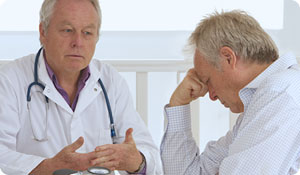
Depression has been called the "common cold of mental health"—and is it any wonder? Approximately 18.8 million American adults, or 9.5 percent of the U.S. adult population, suffer from a depressive disorder each year, according to the National Institute of Mental Health.
What Is Depression?
Despite its prevalence, depression is often misunderstood. "I'm so depressed!" has become a reaction to disappointments ranging from a flat tire to news that a college boyfriend is engaged. But true depression is not a fleeting feeling of dismay or grief, nor is it a character weakness or a bid for attention.
Clinical depression is defined by the World Health Organization as "a common mental disorder" characterized by:
- depressed mood
- loss of interest or pleasure
- feelings of guilt or low self-worth
- disturbed sleep or appetite
- low energy
- poor concentration
Depression is a medical condition with a biological and chemical basis, and it can be caused by a number of factors, including genetics, trauma, and stress.
Managing the Disease
The first step to feeling better is seeking help. Although this is often a difficult step for a depressed person to take, it's important for a doctor to perform a screening and make an appropriate diagnosis.
After a diagnosis of depression, it's vital that the depressed person stick with the prescribed course of treatment, whether it be medication, psychotherapy (also known as talk therapy), or both. It may take a few weeks for the veil of depression to start lifting, so it's important that mental health providers are kept aware of any problems or side effects.
It can be daunting for a depressed person to manage depression alone. Support groups offer opportunities to connect with people in similar situations. Friends and family members should be encouraged to learn more about depression so they can understand what the depressed person is going through. And exercise and spending time with other people can help lift dark moods and alleviate feelings of isolation.
Helping a Depressed Person
The most important thing anyone can do for a depressed person is to help him or her get an appropriate diagnosis and treatment. This may involve encouraging the individual to continue treatment until symptoms begin to subside, accompanying the depressed person to the doctor, or monitoring whether the depressed person is taking prescribed medication.
It's also vital to offer emotional support. Engage the depressed person in conversation and listen carefully. Avoid expectations that the depressed person will "snap out of it." And never ignore references to suicide; be sure to contact a medical professional immediately if the depressed person talks about ending his or her life.





